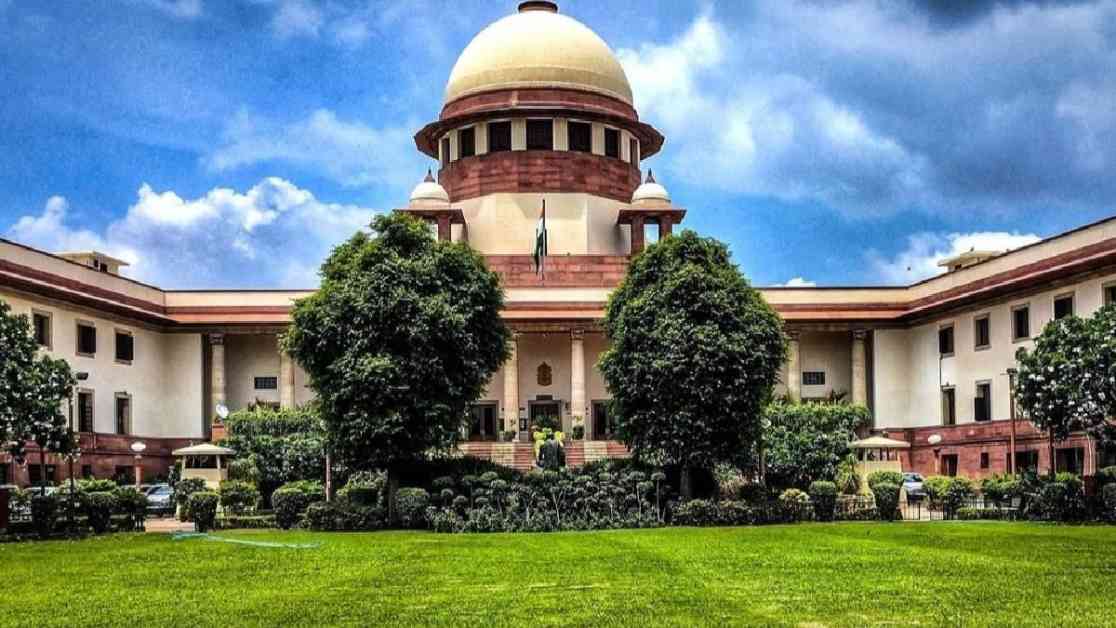The Supreme Court’s recent ruling on the Constitutional validity of arrest and prosecution provisions under the Goods and Services Tax (GST) Act and the Customs Act has sent ripples through the taxation landscape. Upholding the legality of these provisions, the Special Bench comprising Chief Justice Sanjiv Khanna, Justice Bela M. Trivedi, and Justice M.M. Sundresh has provided safeguards against coercive actions, such as arrest, while affirming the rights of those accused under these laws. This landmark decision is poised to reshape tax enforcement practices and mitigate instances of what experts term as “tax terrorism.”
### Upholding Constitutional Validity with Critical Checks and Balances
The ruling by the Supreme Court, after hearing 279 petitions challenging the penal provisions under the Customs Act and the State and Central GST Act, has far-reaching implications. Sudipta Bhattacharjee, Partner at Khaitan & Co, underscores the significance of the Court’s decision by emphasizing the critical checks and balances it introduces. While the validation of arrests under these laws was anticipated, the inclusion of safeguards against potential abuses is a welcome development in the realm of tax enforcement. Bhattacharjee notes that these safeguards will likely play a pivotal role in curbing instances of tax-terrorism and offering a layer of protection to taxpayers.
For instance, the Court has stressed the importance of authorities documenting their ‘reasons to believe’ before resorting to arrests, aligning with established principles laid down in the Arvind Kejriwal case. Furthermore, the Supreme Court’s ruling ensures that individuals facing arrest under the GST or Customs laws are entitled to the protections afforded by the Code of Criminal Procedure. Additionally, the possibility of anticipatory bail in cases of imminent arrest under the GST law, as highlighted by the Court, marks a departure from previous judgments.
### Legal Safeguards and Industry Implications
Abhishek A Rastogi, Founder of Rastogi Chambers, adds his perspective by emphasizing the inherent arbitrariness of arrests in alleged tax evasion cases prior to the conclusion of proceedings and the finalization of tax demands. Rastogi advocates for arrests to be made only once proceedings have been completed and tax evasion has been substantiated. This sentiment is echoed by Amit Maheshwari, Tax Partner at AKM Global, who underscores the dual nature of the Court’s decision. While empowering authorities to combat serious tax fraud, Maheshwari notes that the ruling also ensures legal safeguards for businesses and individuals. Notably, the right to anticipatory bail, even before the filing of a First Information Report (FIR), is a pivotal aspect of the Court’s decision.
Maheshwari further emphasizes the need for businesses to bolster their GST compliance efforts, pointing out that arrests can be made even in cases where the exact tax liability remains undetermined. This delicate balance struck by the ruling, according to Maheshwari, underscores the importance of industry stakeholders adopting a proactive stance towards regulatory compliance. The decision, while aiming to prevent tax evasion, also seeks to safeguard taxpayer rights, making it imperative for businesses to navigate these new parameters with diligence and foresight.
In conclusion, the Supreme Court’s validation of arrest and prosecution provisions under the GST Act and the Customs Act, coupled with the introduction of safeguards against coercive actions, marks a watershed moment in tax enforcement. By balancing the scales between combating tax fraud and protecting taxpayer rights, this decision sets a new precedent in the taxation landscape, urging stakeholders to embrace a proactive approach towards regulatory compliance.























